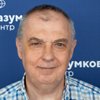Recently, when asked by a Russian journalist: “Why does a Russian have to fight?”, the Russian writer and part-time radical nationalist ideologue Alexander Prokhanov replied: “Because of boredom, ... a Russian cannot help but fight, it is the law of the Russian fate.” Putin said almost the same thing: “We are bored, we need a ‘stir’!”, identifying this ‘stir’ with war.
Actually, boredom is not a specific Russian feeling, but only in Russia has “great boredom” been elevated to the rank of ideological motivation for aggressive wars. With the help of war, “Russians”, according to ideologists, are trying to escape from the Russian routine, which becomes unbearable.
The Austrian/US sociologist Alfred Schütz wrote about the “lifeworld of everyday life” that shapes the reality in which people live: "I am always in a world whose "reality" does not raise questions for me and is self-evident. I was born in it, and I take it for granted that this world existed before."
This feature of consciousness makes people believe in the immutability of the existing order, because “it has always been this way.” It would be good if people believed in the immutability of only the things and situations they like. But quite often they are also convinced that what they do not like will remain unchanged - just because it was like that before...
From this point of view, any flaws in society and people, manifestations of injustice, cruelty, any crimes may exist further, only because “they have always existed.”
The Chairman of the Russian State Duma Vyacheslav Volodin once noted: “After Putin, there will be Putin. Everything that happens after President Putin will happen according to the patterns that he laid down.” That is, routine acts as the “justification” of the reality.
This results in the formation of a “syndrome of acquired helplessness” by such society members, i.e., the belief that nothing can be changed in this life, and if you try to change something, the changes will only be for the worse.
To strengthen the feeling of helplessness of citizens, the authorities use mechanisms of coercion, demonstratively punishing those who oppose them – in order to intimidate a million people, it is not necessary to punish everyone, it’s enough to demonstratively punish a few.
Over time, such helplessness becomes rooted at the level of worldviews in people's minds - the "philosophy of helplessness", when lawlessness, injustice and inability to overcome them are seen as the "law of life", to which one has to adapt.
The feeling of social helplessness gives rise to such negative phenomena as cynicism, unmotivated aggressiveness towards neighbours, inability to cooperate with other people, and emotionally – the feeling of boredom and hopelessness, as well as the emergence of the so-called "cult of the unfortunate person", when unhappy and humiliated people are seen as the only bearers of truth and justice. But over time, this negative emotionality can find a way out, including through the "Russian revolt, senseless and merciless".
Therefore, this potential internal aggression generated by boredom and the feeling of the unbearableness of the Russian routine should be allowed to spill out onto some other object. The neighbouring countries are the most suitable for this. The ideologue of "Putinism" Vladyslav Surkov wrote at the end of 2021 (three months before the start of the Russian large-scale war against Ukraine):
"Social entropy is very toxic. It is not recommended to work with it at home. It needs to be taken elsewhere. Exported for disposal on foreign territory. Export of chaos is not new. Discharge of internal tension through external expansion. Over the centuries, the Russian state with its harsh and immobile political interior has been preserved solely thanks to the relentless pursuit of its borders. It has long forgotten, and most likely, never knew how to survive in other ways. For Russia, permanent expansion is not just one of the ideas, but a genuine existential aspect of our historical existence."
In addition, an aggressive war makes it possible to "dispose of" the most radical "carriers of instability". Aleksandr Borodai, a member of the Russian State Duma and the former "chairman of the Council of Ministers of the DPR" described the social composition of the "volunteers" of the Russian army as follows:
"Who are these people, current volunteers? In fact, they are soldiers of fortune. Paid volunteers. The fact is that they have no money at all, or may get a salary of 20, well, 30, well, 40 thousand at most. And here, they get 220-250-260 and more. ... For this, they are bought as fodder. That is, these people, from the social viewpoint, as it seems to white collars, do not represent much value. Because their age qualification is quite high. Simply, old. They are not a reproductive part of the population. And their social level leaves little hope that any of them will become academicians. This infantry already consists of people who are not considered particularly valuable. Well, in general, how valuable they are... They did not fulfil themselves. There is a concept of "superfluous people", right? Mostly, superfluous people come here. ... Once there are superfluous people, it means that these people can simply be used in the war in order to wear out the enemy as much as possible. ...We have gathered superfluous people, such social ballast from all over Russia. ... It's just the manpower that goes to waste."
Thus, the escape from the unbearable Russian everyday life turns into an escape from life as such, and the promised social elevator, as it turns out, can often move not only up, but also down.
https://razumkov.org.ua/statti/velyka-nudga-rosiia-i-nesterpna-povsiakdennist




